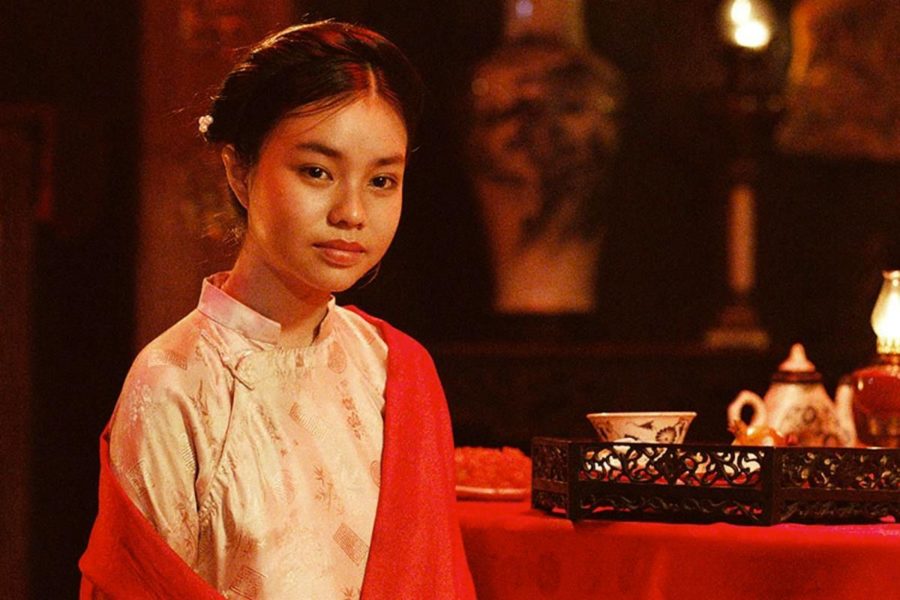
It feels absolutely wonderful to see a Vietnamese film in this year’s Sydney Film Festival. Of course, there have been many Vietnamese film in film festivals before but, with a stronger focus on genre-centric cinema over the recent year, it feels invigorating for a Vietnamese critic such as myself. This year, we have Ash Mayfair‘s directorial debut film, The Third Wife.
It comes with an interesting premise that revolves around the history of Vietnam, involving the time of feudalism. Prepped many themes ripe for melodrama and a talented cast of newcomers and established thespians, does the film live up to the festival hype it has garnered over the past year?
Set in 19th-century rural Vietnam, we follow the story of 14-year-old May (Nguyen Phuong Tra My) becomes the third wife of wealthy, taciturn landowner Hung (Le Vu Long). Soon, she learns that she can only gain social status by asserting herself as a woman who can give birth to a male child.
Guided by Hung’s first two wives, Xuan (Lam Thanh My) and Ha (Tran Nhu Yen Khe), May’s hope to change her status turns gains traction when she gets pregnant. But at a time where she matures into a woman and facing the concept forbidden love and its devastating consequences, May finally comes to an understanding of the brutal truth, which has her stuck between a rock and a hard place.
Over the past month, the film has gained controversy in Vietnam over its young ingenue’s participation in the prurient sex scenes (which are visually chaste, yet implicitly powerful in their subtlety); since Tra My was 12 at the time of filming.
Although the complaints are quite understandable considering the strict censorship rules, what is not understandable is the harsh criticism over the the lead actress and the people associated with her. The issue behind it should be discussed but it is unconscionable that the film has to have this type of scrutiny shrouding its presence, since the film’s intent is meant to highlight and indict the very idea of it.
As for the film itself, The Third Wife is a striking, haunting and astoundingly beautiful directorial debut for Ash Mayfair. The story may delve into familiar territory as the story does venture into tropes and themes that are effective of the time the story is set as well as contemporary times — but Mayfair manages to hits her targets with seemingly effortless ease.
The musical score by Ton That An, which consists of mostly strings and piano, manages to bring a melancholic tone to the proceedings; Thai cinematographer Chananun Chotrungroj effectively lenses the beautiful settings, while adding to the haunting feel that something sinister is afoot in the story; and the editing by Julie Beziau is smooth and fluid, which adds to the serene pacing.
Thanks to the production values, the film manages to call to mind the entrancing, moody filmmaking of acclaimed fellow acclaimed director Tran Anh Hung (who is credited as an artistic advisor) as well as the ripe melodrama of the films by renowned Chinese director Zhang Yimou; and yet it is also able to stand on its own two feet, due to Mayfair’s singular, personalized filmmaking.
The acting is also stellar, considering the controversial story elements that the actresses have to commit to. The men, who do not have much to contribute (not an off-handed comment) as intended, but they play their characters with dignity — particularly Nguyen Thanh Tam, who plays a laughably pathetic, lovesick man, who is in love with one of Hung’s wives — but the film belongs to the talented women.
Newcomer Nguyen Phuong Tra My gives a daring and believable performance as May — she makes her character arc that goes from naive to conflicted to enraged with nuanced aplomb — particularly during a scene where she her character gives into her urges and bearing the consequences of her actions.
Lam Thanh My and Tran Nu Yen Khe, the latter who has appeared in too many acclaimed Vietnamese films to name, lend strong support as the first two wives of Hung, who guide May through the transitions. Lam manages to bring sympathy as well as believably controlled prurience to her character while Tran brings an appropriate layer of superiority that can be misconstrued in many ways, which adds mystery to the film as well as her motives. Also noteworthy is the appearance of Mai Cat Vy, who plays one of two daughters of Xuan. Appearing in 2019’s action film Furie, it seems that we will be seeing a lot more of her presence in the future.
As for the flaws of the film, even though the film is just over 90 minutes, the story does feel padded, as Mayfair tends to pile on the nature shots, which are quite prevalent in the third act. Also, the film feels oddly calculated in how much it feels catered to festival audiences, as it ticks off the checklist of being an arthouse film with such proficiency, that it becomes quite self-conscious and noticeable.
The Third Wife is a great directorial debut for director Mayfair and I hope it pays off for her, as she takes on more ambitious projects in the future. Highly recommended.
![]()
![]()
![]()
![]()
![]()
FOUR STARS (OUT OF FIVE)
The Third Wife has screened at the Sydney Film Festival from June 5th to June 19th, with additional screenings are part of the Travelling Film Festival. Details are HERE.
